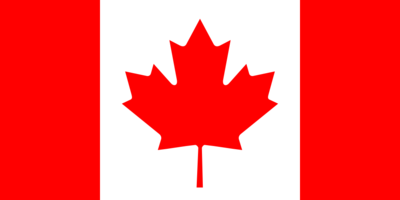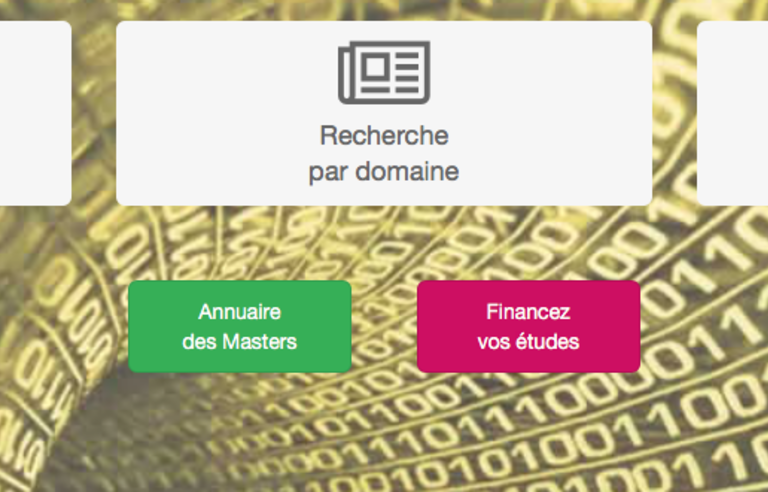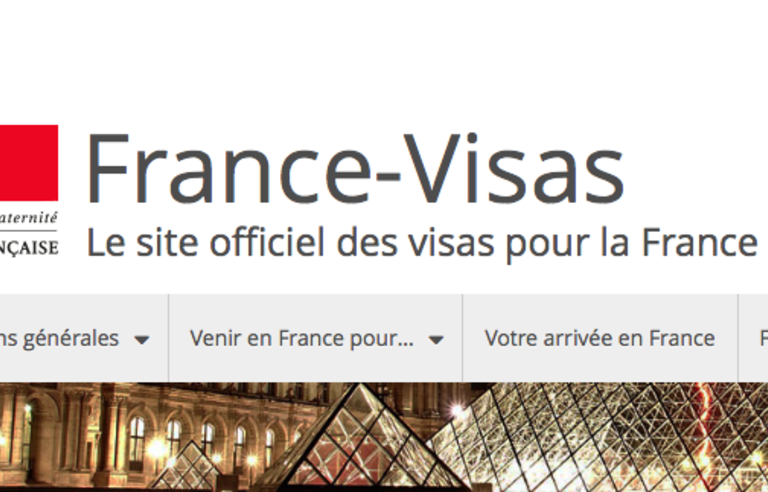France spends 49.5 billion euros on research, equal to 2.22% of its GDP. This has enabled the country to achieve its objectives, in particular at an international level, and to attract talented researchers from around the world.
Enrolling after the 1st year (2° & 3° years, Master, Grandes écoles)
The Prior Admission Request ( HDAP ) procedure concerns foreign students who apply for the second or third year of an undergraduate program (License 2 and 3), in selective university training (BUT, DEUST, DU) or at all other second cycle programs (Masters) in France.
When to register?
- Opening of the procedure: October 1st, 2024
- Deadline for submitting files to establishments: February 15th, 2025
- Deadline for establishment educational commissions: May 15th, 2025
- Student decision deadline: May 31st, 2025
Note: For establishments not connected to the Etudes en France platform, it is recommended to contact them directly to find out their application procedure and the registration deadlines for their different programs as they follow different calendars.
Register on the Études en France online platform. Under the HDAP, you are allowed to apply for 7 programs.
Complete the requested information and add the necessary supporting documents for your application:
|
Required documents |
Comments |
|
Passport |
Please note that you will need a valid passport to apply for a visa. If you are a citizen of a country other than Canada, please provide proof of your legal status in Canada (permanent residence card, study/work permit, etc.) in addition to your passport. |
|
ID photo |
A clear and legible ID photo on a light background. |
|
resume |
An updated resume that includes your academic background and professional experience. |
|
Official transcripts |
You will be asked to scan the transcripts for the current year (1st semester) as well as the two school years preceding the current year*. Unofficial transcripts are not accepted. A PDF version of your official transcripts is acceptable. If a watermark appears on official hard copies when you scan them, we are OK with that. *Please note: For Quebec, in addition to your CEGEP transcripts, you will need to provide a copy of your Secondary Studies Diploma (DES) and your apprenticeship record as part of the non-DAP procedure. |
|
Diploma(s) |
We will ask you for a copy of the last diploma you obtained (secondary school, CEGEP or university). |
|
Language test results |
Check the language level prerequisites for each desired training. To be sent before the deadline for submitting applications – Please contact the Alliance Française in which you wish to take your language test or your Espace Campus France to find out the test dates. |
|
French translations |
You will need to obtain French translations of all your documents (except your passport). The diploma and transcripts must be officially translated and completed by a professional. |
The training basket
To find out about the Bachelor's degree offer in France, the Campus France website offers a catalog where it is possible to search for training by keyword, by field of study or by region of France: https: //cataloguelm.campusfrance .org/licence/#/domain or https://cataloguelm.campusfrance.org/master/
To find training offered in English, consult the Programs taught in English directory.
Be careful ! Some of these training courses are not open on the Etudes en France platform. Check with the establishments to find out their application procedure.
Attention ! Some courses ask candidates to complete a parallel application procedure when submitting their application on the Etudes en France platform. Remember to always check the “Training information” section in your basket
Take a French assessment
French certification is mandatory as part of the HDAP application procedure for training in French.
Alongside your Study in France application, register for one of the following tests TCF-TP (+ compulsory written expression) or DELF/DALF, necessary for the creation of your application file for French higher education.
Please note: exam registration deadlines may be BEFORE the HDAP deadline . Contact your local Alliance Française or Campus France as soon as possible to find out how to register.
Exemption : Certain candidates may be exempt from the language test, in particular those whose secondary studies took place, for the most part, in French.
If you continued your studies in France or participated in a French immersion program, if you have already obtained one of the recognized French tests (DELF, DALF, TCF, TEF etc.) you just need to attach a copy of your diploma or your transcripts to be exempt from a French test before the deadline for submitting your HDAP file.
Application fees
- $150 - DAP and HDAP candidates (the price remains the same whether you apply for one or more training courses)
Exemptions
The following are exempt from the Study in France application fees:
- Students who are beneficiaries of a French government scholarship for the academic year for which they are applying.
- Students holding a French baccalaureate obtained during the last four academic years.
If you fall into one of these categories, please email your local Campus France office - see geographic breakdown for Montreal/Ottawa and Toronto - to request an exemption. Please include all documents relating to your exemption request (copy of your scholarship documents, etc.).
Terms and conditions
Payment will require the student's Campus France Etudes en France identification number (CAXX-XXXXX - number issued when the student created their Etudes en France account).
Payments will be processed by Interact at the Alliance Française de Toronto. They are final and non-refundable.
The application file must be complete with the required documents uploaded and submitted. If the file is incomplete upon submission and payment, the examination of the application, including visa processing, will take longer.
The student must be reachable by telephone throughout the process.
Interview with a Campus France advisor
Once your application has been submitted and your $150 payment validated on the Etudes en France platform, you will have an assessment interview. We will inform you of the available slots by message.
This will be a 20-minute online interview with a Campus France advisor. In this interview, we will discuss about your background, your academic and professional pathway, as well as your motivations for studying in France. It will also be an opportunity to assess your level of French and the coherence of your academic career.
The interview will be conducted in French or English, depending on the language of your program in France. If your program is in English, we will ask you a few questions in French to make sure you have a basic knowledge of the language.
Response from universities
Your application file is examined at the same time by the educational committees of the courses for which you applied.
These universities will notify you of their acceptance proposal no later than April 30th, 2025. They will be able to inform you, if necessary, of the proposed exemptions from which you could benefit.
You have until May 31st, 2025 to give your response to the university which made you a registration offer. If you receive several proposals, you will have to make a choice in favor of only one proposal.
The absence of a response beyond May 31st, 2025 is equivalent to a refusal on your part of the registration proposal.
Support and monitoring
Campus France Canada is available to candidates to help them throughout their admission process. If you have any questions regarding the application process, please contact the Espace Campus France (branche) attached to your province of residence:
- Québec : montreal@campusfrance.org
- Ontario (sauf région d’Ottawa) et Manitoba : toronto@campusfrance.org
- Ville d'Ottawa, Nouvelle-Ecosse, Nouveau-Brunswick, Terre-Neuve-et-Labrador, Ile-du-Prince-Edouard : ottawa@campusfrance.org
- Colombie-Britannique, Alberta, Saskatchewan, Yukon, Territoires du Nord-Ouest : campusfrance.vancouver-cslt@diplomatie.gouv.fr
For any questions related to your Studies in France file, please contact: peefcanada@campusfrance.org
Doctorate / Research
The Doctorate involves training through research, in a research laboratory, and is organised by one of the 270 doctoral schools. The work is completed with a viva voce of a thesis in front of a jury.
Doctorate or Thesis?
In French, the word "thesis" (thèse) is often mixed up with the word "Doctorate" (doctorat).
The Doctorate is the name of the degree that you obtain. It is the highest degree awarded by the universities and internationally recognised. In French, the period spent preparing the Doctorate is often called the "thèse"; people talk about enrolling for a "thèse", which means enrolling for a Doctorate.
The thesis refers to the document that you have to write and present before a jury to obtain your doctoral degree. There is a tendency to say "faire une thèse " (doing a thesis) instead of doing a Doctorate, as the thesis is the biggest part!
And you have to do your Doctorate under the supervision of a "Thesis Supervisor", who will guide you throughout your Doctorate. You must have selected a thesis supervisor, who must accept to supervise you, before you start your Doctorate.
Where to do your Doctorate?
A Doctorate can be done in all of the universities as well as in most engineering, management and even art Grandes Ecoles, which are generally associated with a university. The Doctorate is the highest international degree and is awarded after 3 years (in the natural and technological sciences) to a maximum of 6 years (in social sciences and the humanities).
In a research laboratory, with a thesis supervisor

The Doctorate in the natural and technological sciences takes place full time in a research laboratory, in daily conjunction with your colleagues.
In the arts and humanities, the work is often more individual, and does not require a daily presence in a research laboratory. You will often be working from home, but will be able to meet your thesis supervisor on a regular basis and work in the university or school library.
Nearly 15,000 Doctorates are conferred in France each year: 46% in science and technology, 20% in Biology-Medicine, 20% in the humanities and 14% in the social sciences.
The Doctoral schools

The Doctorate is organised by "Doctoral schools". There are 270 Doctoral schools attached to 2,500 public research laboratories throughout the entire country. Each Doctoral School has several research laboratories.
The Doctoral Schools organise and supervise the doctoral students, in particular with additional classes in methodology, communication, writing scientific papers, starting a company, intellectual property, etc. These additional classes correspond to approximately 150 hrs of classes spread over the total duration of the Doctorate.
The Doctoral schools also organise your enrolment in a Doctorate, and, in collaboration with your thesis supervisor, monitor your progress.
You will find the list of Doctoral schools in our directory.
Writing and defending your thesis

In addition to experiments and studying, you will have to write a thesis, which is a document at least 200 pages long. In your thesis, you can also include articles that you have published in technical journals. Writing it proves that you have acquired a certain number of skills: deductive reasoning, critical ability, scholarship, etc.
Once the thesis is finished, it must be approved by 2 examiners, and you will then have the right to "defend" your thesis, meaning that you will have to present it orally before a jury. In this oral examination you present your research method and results before debating them with the members of the jury. The viva voce examination, or thesis defence, is generally public.
The viva voce, and the thesis itself, will be published by the university and on the site www.theses.fr.
The different types of Doctorates
The single Doctorate
This is the most common way of doing a Doctorate, involving 3 to 6 years in the same research laboratory. At the end, you will obtain a French degree. Enrolment and the viva voce take place in a single establishment, and the thesis is written under the direction of a single supervisor.
The co-supervised Doctorate
The co-supervised Doctorate means that you have 2 thesis supervisors. One thesis supervisor in the main laboratory, in the establishment in which you are enrolled, and one other thesis supervisor, generally in another establishment, in France or in another country.
You enrol and have the viva voce only in the main thesis supervisor's institute, which means that you will be awarded the degree by this university.
It is an interesting and easy approach that lets you do your Doctorate in the framework of international collaboration.
The joint Doctorate
The joint Doctorate is a co-supervised Doctorate that means you receive a degree from each of the universities of the 2 thesis supervisors.
It is done within a French establishment and a foreign establishment, and results in two degrees conferred by each establishment (and sometimes a single joint degree, with the name of the 2 establishments).
You enrol in both establishments through a degree proposal establishing how the joint Doctorate will function.
Everything must be stated in this document: in which of the two establishments will the viva voce take place? Who will pay the jury's travelling expenses?
Each year, the doctoral student must enrol in both establishments, but only pays in one. This must also be stated in the joint Doctorate document.
The in-company Doctorate (CIFRE)
Doing a Doctorate in a company is an excellent opportunity to enter the world of employment. The CIFRE (Convention Industrielle de Formation par la Recherche - the Industrial Agreement for Training through Research) lets you do your Doctorate in a company, in conjunction with a public university. In this case, a bit like with co-supervision, you will have a thesis supervisor, a university professor, and a supervisor from the company. You are employed by the company, which receives a grant from the State, and you receive a degree from the university.
Some subsidies for nationals of other countries, such as India and Morocco, and some specific programmes like EIT Digital encourage the in-company Doctorate.
The European Joint Doctorate
The European Joint Doctorate was established in Horizon 2020, a 2014-2020 European Union programme for financing research and innovation, as part of the Marie Skłodowska-Curie actions.
It is open to all foreign students, and lets them obtain a 3-year Doctorate. The Doctorate is done at 3 European establishments in 3 different countries.
Doing a Doctorate in English
In the natural and technological sciences, you will not be required to have a particular level of French when doing a Doctorate. Discussions with the research supervisor take place in English. The doctoral student can take French classes while in France, but the thesis can be written and defended just in English. Only the abstract must be translated into French.
In the social sciences and humanities, a good level of French is often required (generally level B1 or B2). As for commerce, marketing, political science, communication and law, it is sometimes also possible to write your thesis in English, but that depends on the institute.















